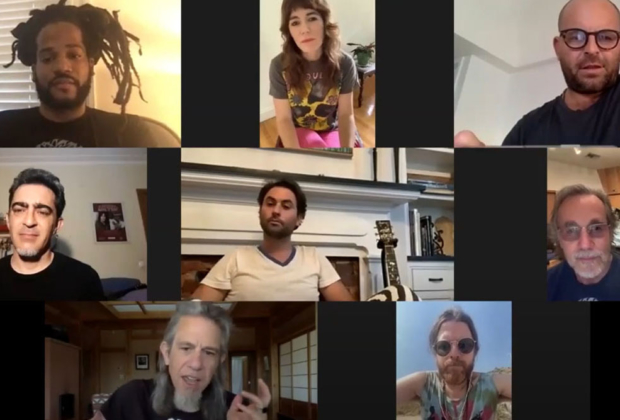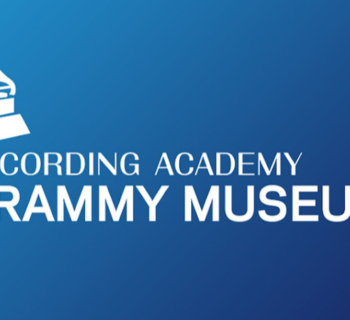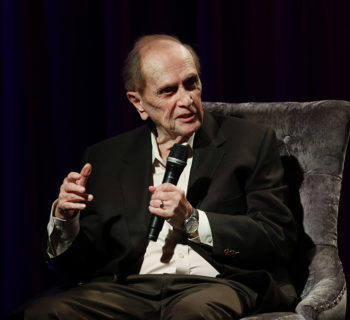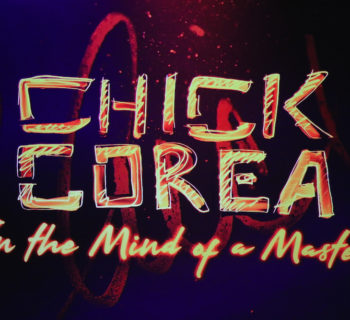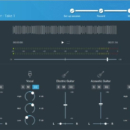As part of its series of conversations known as “Programs At Home Series on Collection:live,” the GRAMMY Museum® recently hosted a virtual sitdown with many of the core members of the super-group behind the collaborative benefit album Let the Rhythm Lead: Haiti Song Summit, Vol. 1. The conversation included singer-songwriters Jackson Browne, Jenny Lewis, Jonathan Russell and Jonathan Wilson; Haitian guitarist, bandleader and bass player Paul Beaubrun; Malian singer and guitar virtuoso Habib Koité; flamenco guitarist, musicologist and producer Raúl Rodríguez; and Artists Institute co-founder and filmmaker David Belle. The group was interviewed by Scott Goldman, Host/Moderator, GRAMMY Museum Public Programs. The video is now archived on the GRAMMY Museum’s website and is available for viewing here: watch.grammymuseum.
Let the Rhythm Lead: Haiti Song Summit, Vol. 1 was released earlier this year. Hailing from four different countries, interweaving North American Indie Rock with beats and percussion of Haitian Vodou, Spanish and Malian guitar, Tres Flamenco, with songs in English, Creole, Khassonké, Manding and Spanish, Let the Rhythm Lead celebrates the work of Artists for Peace and Justice in Haiti, and was recorded at the We Are The World Studio A at the Artists Institute on the island's southern coast, in the town of Jacmel.
Panelist David Belle gave a little history and talked about how the institute and studio came into being: “After the devastating 2010 earthquake in Haiti, we were invited to be part of the ‘We Are The World’ remake with Quincy Jones and Lionel Richie. We proposed to them that they help us expand our existing cinema school with the school for audio engineering and music production, and the Artist Institute campus was born with its sister school, the Audio Institute. It's a thatched-roof recording studio right on the ocean, and it's been teaching Haitian engineers and producers the art of recording. Jackson's been a friend of ours since the very beginning of this endeavor, and the idea [of recording this album] came to him one night after a great session on the beach with Jonathan Russell with local players – why not come back and invite other songwriters and share that recording experience with our students?”
When moderator Scott Goldman asked Jenny Lewis about working with this diverse group of musicians, she added, “It was remarkable how we all just understood each other immediately and we didn't necessarily speak the same language. But it really was the music that made us understand each other completely.”
In summary, Jackson Browne remarked, “There's one thread that runs through the whole record, and that is one of love. Whether it's the message in the lyrics of each of these songs or whether it's just the joy that inhabits the grooves and the way people just made the glue happen with the love and the regard that everybody had for each other. It's fascinating to me to see songs that were written on the spot summon this love, and maybe that's the thing that is really most outstanding about Haitian beliefs and Haitian culture.”

